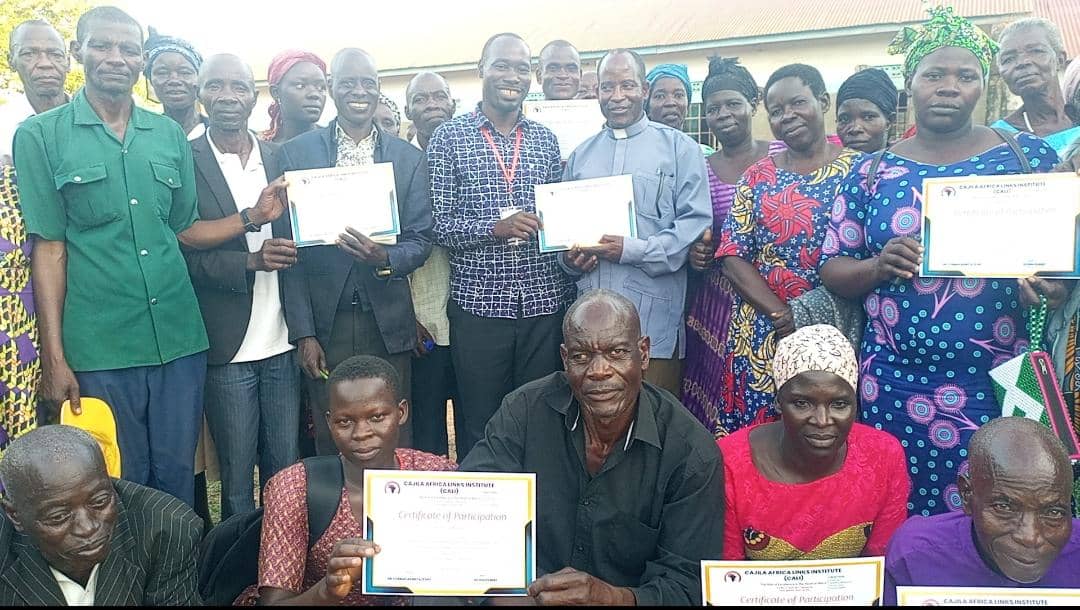
By Our Reporter
At least 500 farmers in Serere District have been equipped with practical skills in making liquid soap, organic pesticides, and fertilizers, thanks to a two-day training organized by Cajila Africa Links Institute, a non-governmental organization working in the Teso Sub-region.
Dr. Cosmas Agweta, the Executive Director of Cajila Africa Links Institute, said the initiative aims to empower rural farmers to remain active and self-reliant in agriculture by equipping them with simple but impactful production skills.
Many farmers have the potential, but lack the necessary skills to explore opportunities around them. This training is our way of building that capacity and ensuring that even in rural areas, people can engage in meaningful and sustainable activities, Dr. Agweta stated.
The training, held at St. Mark Church of Uganda in Serere Town Council, culminated in the awarding of certificates of participation to the farmers who successfully completed the program.
Keren Ajibo, a trainer in liquid soap production, guided participants through the necessary ingredients, including industrial salt, caustic soda, CMC, KDS, urea, sulfuric acid, and Ungalo. She encouraged the farmers to keep practicing, noting that liquid soap making is a profitable skill that can supplement their income.
Julius Echodu, Cajila’s Sustainability Officer, demonstrated the preparation of organic pesticides and fertilizers that are both effective and safe for crops and humans. He emphasized the importance of knowledge transfer, encouraging trainees to share their new skills within their communities.
Those who have been trained today will become trainers in their own communities. This will not only improve agricultural productivity but also promote safer farming practices, said Echodu.
He added that Cajila also offers training in other vocational skills such as shampoo production, shoemaking, carpentry, mechanics, hairdressing, and fashion and design.
Rev. Canon Davidi Epongu Opio of the Church of Uganda Diocese of Soroti expressed appreciation for Cajila’s role in uplifting the community.
We are grateful for this kind of empowerment. When you share knowledge, you build a stronger, more informed community. I encourage all trainees to apply what they’ve learned to better their homes and communities, Canon Opio remarked.
The participants expressed satisfaction with the hands-on training. Patrick Ochen, one of the trainees, thanked Cajila for providing life-changing skills, while Grace Adeke said she plans to immediately start making liquid soap and pesticides to reduce household expenses and possibly start a business.
The training reflects a growing recognition of the importance of practical skills in improving livelihoods and promoting self-sufficiency in rural Uganda.